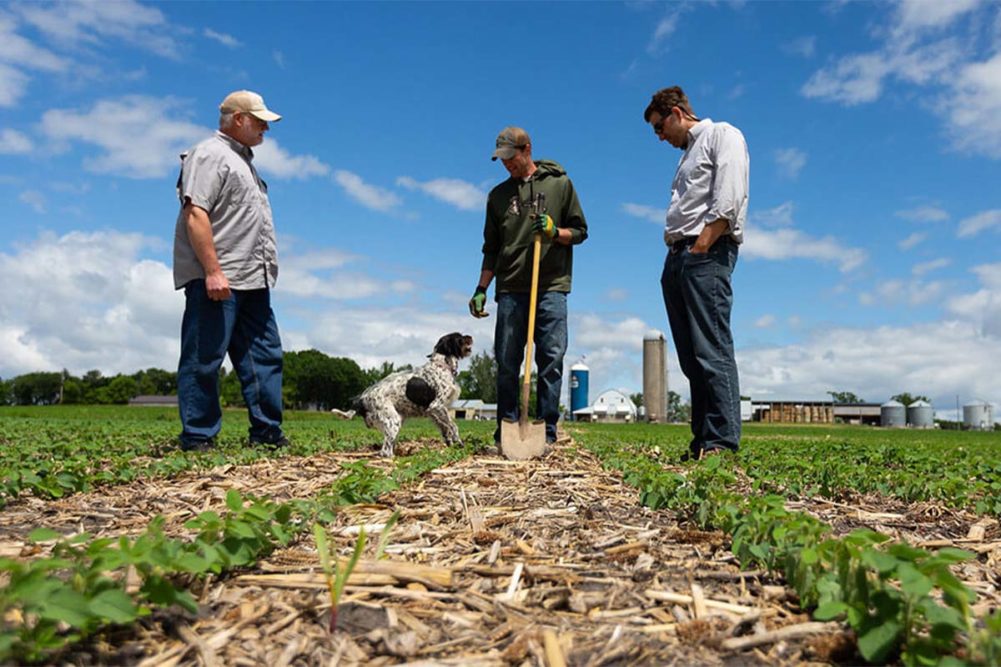MINNEAPOLIS, MINN. — Hormel Foods Corp., Target Corp., MBOLD and The Nature Conservancy joined forces in an agriculture pilot project to improve water and air quality, sequester greenhouse gases and increase farmland profitability through soil health.
With MBOLD, a coalition of Minnesota-based food and agriculture business leaders, striking up the partnership, and Hormel and Target collectively investing $1.7 million for the project, the organizations’ goal is to enroll up to 50,000 acres.
“MBOLD helped unite participants across multiple sectors behind this important investment. By partnering across the value chain from grower to food company to retailer, we can support agricultural innovations that work for farmers, businesses and our environment,” said JoAnne Berkenkamp, managing director of the MBOLD coalition. “It’s a great example of how Minnesota leaders are working together to tackle major challenges facing food and agriculture.”
Hormel Foods hopes the three-way partnership will show how companies with shared supply chains can team up to accelerate the adoption of soil health practices.
“Hormel Foods is eager to support and engage with growers to accelerate the adoption of regenerative agriculture practices and help strengthen Minnesota’s economy, environment and quality of life,” said Mark Coffey, group vice president of supply chain for Hormel Foods. “We are committed to protecting water quality, reducing water use and improving our renewable energy sources, as we recognize the importance of these actions in helping to mitigate climate change.”
These organizations’ efforts are part of the Ecosystem Services Market Consortium’s (ESMC) initiative to launch a nationwide marketplace for agricultural carbon and water credits in 2022.
The Nature Conservancy (TNC) is leading the Minnesota pilot. Farmers join the program on a first come, first served basis.
Minnesota’s farms could potentially sequester as much as 10.5 million tonnes of CO2 per year, according to a report from TNC.
“We will show how farmers, food companies and consumers can advance regenerative farming practices in a quantifiable and economical way,” said Leif Fixen, agriculture strategy manager for TNC, Minnesota. “There is increased demand across the supply chain for soil health practices as these changes are required to sustain our ag economy and environment into the future.”
Other funding partners in the Minnesota pilot, which was launched by ESMC and The Nature Conservancy in 2020, include the Natural Resources Conservation Service, Minnesota Department of Agriculture, and several other ag and conservation-focused organizations.


